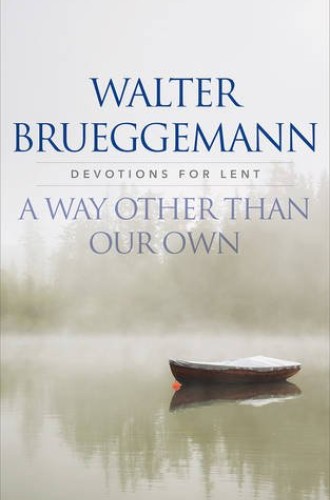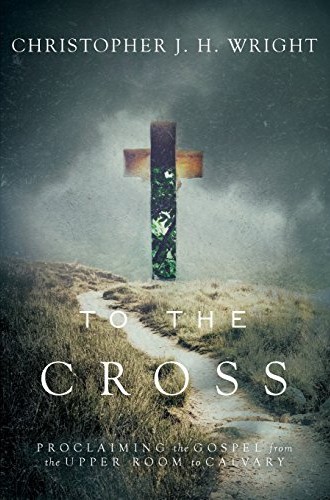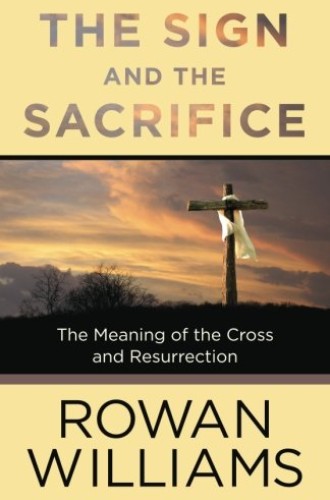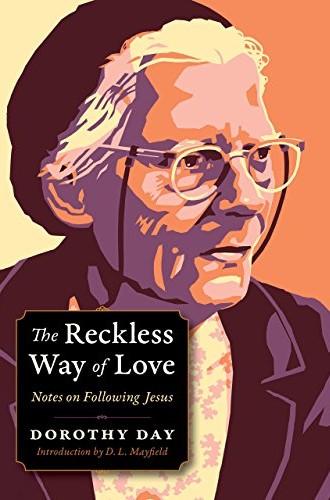Walter Brueggemann’s brief Lenten devotions are wise and lyrical. Writing with the complexity of someone steeped in scripture, he claims within a single page that “God is cranky and absolute” and “God is assuring and affirming and generous and kind.” Speaking to readers on all sides of the political spectrum, he asserts that Lent is a time to resist the temptations of empire, which include “false patriotism; overheated consumerism; easy, conventional violence; and limitless acquisitiveness.” Such resistance might take many forms. Brueggemann exhorts readers to “eat thin and pray hard,” grasp God’s relentless faithfulness, tell hard truths, and dance in those spaces where life and justice flourish. Sin is very real, but so is reconciliation. “The future is on God’s terms, and it will not be otherwise.”
Christopher J. H. Wright’s sermons on Jesus’ journey to the cross, originally delivered at All Souls Church in London, are at once narrative and deeply theological. Wright brings keen pastoral insight to a traditional view of atonement. “For those hours on the cross, Jesus experienced the horror of being forsaken, abandoned, and rejected by God, for God’s only ultimate and holy response to sin is to expel it from his presence. And Jesus went to that place of abandonment so that you and I need not do so, when we trust in Christ.” The cross is life-giving: it forgives sins, defeats evil, liberates humanity, destroys death, reconciles enemies to one another and to God, and restores all of creation. For those who struggle with traditional views of atonement, Wright’s theology is not always easy to swallow. But perhaps that’s his point. Because despite all appearances, “God was never more present on earth than at the cross.”
In his new lovely and accessible work of theology, Rowan Williams addresses the difficulties of atonement theory without stripping it of its mystery or power. The cross is both a sign of God’s vulnerable love and a divine gift that effects transformation in the lives of people across history. It’s a victory in which “the catastrophe, the self-destructive spiral downwards of human beings, is grabbed and halted by the hand of God.” But Williams avoids a triumphalist view of resurrection. “The resurrection is not about the wiping out of our history, pain or failure, it is about how pain and failure themselves—humanity marked by history—may yet be transfigured and made beautiful.” As the resurrected Christ is set loose in the world, a new age is inaugurated. But the world is still broken, and Christians are called to “become signs of who and what God is: signs of faithfulness, generosity, grace and mercy.”
Dorothy Day’s wisdom, compiled from a broad spectrum of her writings by editor Carolyn Kurtz, is here more idealistic than practical. I found myself rolling my eyes a bit as I encountered broad statements like this one: “Love and ever more love is the only solution to every problem that comes up. If we love each other enough, we will bear with each other’s faults and burdens.” While these words are beautiful and I agree with them wholeheartedly, I’m not sure what they mean for my daily life. But as I remembered Day’s biography, the link between the abstract and the concrete became clear to me. “I do not need to retire to my room to pray,” she writes. “It is enough to get out and walk in the wilderness of the streets.” Walking in the wilderness of the streets is something I can do, situated as I am in a city where need and injustice abounds. As D. L. Mayfield explains in the introduction, Day was no saint: she was “an ordinary person simply trying to walk the road of following Christ.” This is precisely why her reflections on following Jesus are worthy of study.









